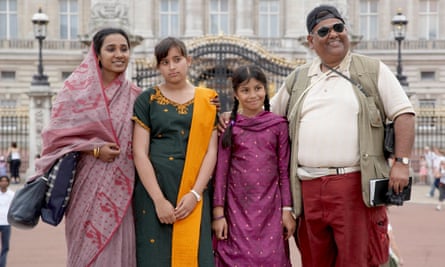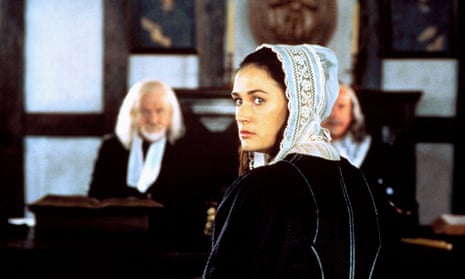It was only when someone who read a draft of my novel, about a woman who has an adulterous affair in the 1990s, remarked on my heroine’s “lack of shame” that I began to think more consciously about how other adulterous heroines had felt and fared. I thought: why would she be ashamed of desire? Bad behaviour, maybe, but desire?
I was well acquainted with the first (long) phase of female adultery in western literature: the phase in which this most private of acts was – particularly for women – utterly public, a threat to the social order that required a correspondingly communal punishment. I had on my shelf La Princesse de Clèves (1678) – the first novel of female adultery that had ever bewitched me – but I’d discovered it at a time in my life when I was both addled by hormones and in thrall to an ideal of asceticism, and it was the princess’s renunciation of all pleasure that fascinated me as much as it was her illicit love.
Written by Madame de La Fayette, La Princesse de Clèves tells the tale of a young woman – married off at 16 to the steadfast and loving Prince de Clèves – who falls passionately in love with the Duc de Nemours. Though the affair is never consummated, the prince ultimately dies of sadness and jealousy, upon which Nemours begs the princess to marry him. She refuses and retreats into seclusion, renouncing what she most desires partly out of duty to her late husband, but more out of self-preservation: she fears the unhappiness she’ll suffer when Nemours’ passion wanes, as she is certain it will. In placing peace of mind above passion, she retains a form of freedom. The novel’s refusal to entirely equate adulterous love with a woman’s loss of control over her fate feels sneakily modern.
The centuries pass. Unfaithful heroines meet tragic ends (Emma Bovary, Anna Karenina) though the punishment seems as much for free-thinking as for sex, the sex being merely the outward sign of a dangerous inner autonomy. Hester Prynne, in Nathaniel Hawthorne’s The Scarlet Letter (1850), is sensational. As Elizabeth Hardwick notes in Seduction and Betrayal, Hester’s woes – her imprisonment, the illegitimate daughter, her lover’s cowardice, that scarlet letter – “come to her, not as depressing clouds of consequence, but as opportunities for self-knowledge, for a strange and striking stardom”, prefiguring what’s ahead: sexual transgression as a path to empowerment.
In Kate Chopin’s The Awakening (1899), Edna Pontellier is liberated from “a life-long, stupid dream” by both sexual passion and art. Edna’s future, as she tells her lover, doesn’t hinge on her husband setting her free. “If he were to say, ‘Here, Robert, take her and be happy; she is yours,’ I should laugh at you both.” Edna experiences her moral downfall as spiritual uplift. But what then? What place for an awakened woman in late-19th century Louisiana? Edna drowns herself – less over her lover than over the realisation that her aspirations and her life’s possibilities are irreconcilable.
I like to think it was a letter from Mary McCarthy that signalled the moment when killing off one’s heroine in answer to her infidelity was no longer a serious option. At the end of A Charmed Life (1955), Martha Sinnott perishes in a car crash, but McCarthy had written to her agent that the end was a joke, a rug pulled out from under the reader: “The original idea was to have her die or made sterile by the abortion. I prefer this comic twist, which carries a similar idea but without sentimentality.”
By the late 1960s, the punishment narrative was pretty much in tatters. Adultery was still tussling with the social order, but now inseparable from the general drift and breakage of the wider society. The social convention was free love, and the adultery tales of the period can depict a rather joyless, even compulsory, indulgence.
In Paula Fox’s Desperate Characters (1970), Sophie Bentwood has had an affair, but the adultery is largely emblematic. At the novel’s outset, Sophie is bitten by a stray cat, which may or may not be rabid, an image of the feral and the anarchic infiltrating the domestic. She almost hopes she’s been infected: it would create a balance “between the quiet, rather vacant progression of the days … and those portents that lit up the dark at the edge of her own existence.”
So where are we now? The critic James Wood has remarked that adultery has withered as a fictional theme because, nowadays, “it drags such little consequence behind it”. This argument depends on a certain definition of consequences – banishment, punishment, imprisonment, that sort of thing. But if by consequence we mean the questions of who one is and how one should live – not minor matters, and questions woven into novels of female adultery since The Princesse de Clèves – then adultery, like any form of serious betrayal, still matters in fiction.

Two more recent novels, by Monica Ali and Anne Enright, are quietly radical takes on female infidelity. (One also thinks of John Banville’s Ancient Light (2012), in which – marvellously – the heroine doesn’t die because she commits adultery, but has an affair because she’s going to die.)
Ali’s 2003 novel Brick Lane brings to mind La Princesse de Clèves. We’re once again in a traditional society – here transported and fractured – with a heroine whose life is thrown off course by extramarital love. In both cases, the heroine renounces her lover, but while the princess afterwards withdraws from society, Ali’s Nazneen enters the world as an independent being.
At the novel’s end, Nazneen, a village girl from Bangladesh, parts from both husband and lover, and takes on the challenge of raising two girls on her own in London, devoid of any certain community, in a post-9/11 world. We’ve come a long way since Chopin brought her heroine to the threshold, then found no suitable world for her to step out into.
Enright’s The Forgotten Waltz (2011) is set during Ireland’s boom and bust. Society is no longer punitive – there is a post-moral feel to the novel (“the bank was licking me slowly all over”). The “seismic moral shift” that is marital betrayal is fully felt, even as Enright deflates the conventions of the punishment narrative. Gina’s low point is seedy rather than suicidal: with the economy tanking, she takes work as a “pimp” – shepherding bikini-clad girls into bars to hawk flavoured vodka.
Such is the messy business of debt and divorce. Gina and Sean have left their respective spouses and are tentatively, inelegantly, cohabiting. (Enright is, as always, wonderful at capturing the subtle shifts in the psychological climate.) If there is melancholy running through the book’s second act, it is the bittersweetness that can come with our having got what we wanted; it is the small earthly ups and downs of togetherness set against the mythologising fantasies that accompany infidelity. It is the quiet guilt we live with rather than the melodrama of self-immolation.
In my novel, there is a social order to contend with. It is the order of the small Irish town. My heroine has no idea what is known, or by whom, or what judgments are being made – all of which are ultimately irrelevant. She feels the weight of the old narratives, when it’s the new narratives that apply. Understanding this means learning how to live.
Molly McCloskey’s When Light Is Like Water is published by Penguin.

Comments (…)
Sign in or create your Guardian account to join the discussion